Hello World #28 out now: Teaching programming
Take a minute to think about the technology you use every day. How many programming hours went into the way you are reading this blog post? What discussions and solutions built the browser you’re using? We take for granted all the clever, creative programming that goes into the technology we use in our daily lives. But how do we best teach programming to support the next generation of innovators?

The brand-new issue of Hello World — and our new podcast mini series — aims to answer that question. This issue is packed with insightful research, practical advice, and thoughtful ways to best teach programming in your classroom.
Teaching programming: What works best for learners in school?
In their articles for issue 28, educators explore a range of topics related to teaching programming, such as:
- How to help students transition from block- to text-based programming
- Stepping into the role of computer science educator with little to no prior programming experience
- Insights from an introductory programming course which encourages working with, and not against, generative AI tools
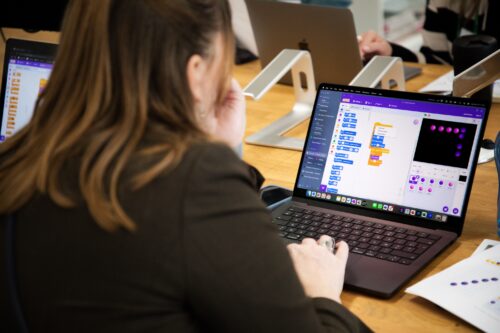
Our feature articles also include:
- Tried and tested unplugged activities
- A step-by-step guide to grant writing for your classroom
- Tips and activities to introduce the PRIMM approach for young digital explorers
Simon Peyton Jones, British computer scientist and Member of the Raspberry Pi Foundation, says in his article ‘Programming the Future’:
“Designing and writing software is one of the most demanding, intellectually stretching tasks that humans undertake. If we build a building, we are limited by the strength of steel — we can only make the tower so high before it will fall under its own weight. But software knows no such limits. The only limit is our own ability (or inability) to manage the complexity of the systems we build. That is humbling — but also exciting.”
Download Hello World issue 28 for free
Programming is exciting, and we hope Hello World issue 28 inspires you to continue doing the important work of educating the next generation of programmers and innovators. This issue will provide you with plenty of ideas to take away and build upon.
Also in issue 28:
- Inclusive programming pedagogies
- Future careers
- Spatial computing
And much, much more.
Let us know which articles you found most thought-provoking, and which will be most helpful for your teaching, by sending us a message or tagging us on social media.
Thank you to Oracle for sponsoring this issue of Hello World.

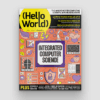
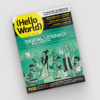
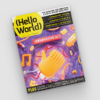
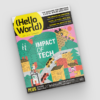
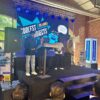
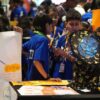
1 comment
Jump to the comment form
Trevor Bragg
Attention: James Robinson
Hi James
Thanks for continuing to share excellent resources through your podcasts and Hello World magazine. Yesterday, I delivered CPD ” Supporting reluctant learners with coding” to 9 CS teachers of a South London MAT, which was appreciated, especially the many Parsons problems and hands on coding tasks using PRIMM trying out most of the 12 tips given in the first of 2 sessions.
Would be happy to share my presentation.
One question I could not answer on the day, how can you give students CS homework that could be done on mobiles as many pupils do not have access to tablets or laptops out of class? Any ideas?
Keep up the good work
Trevor